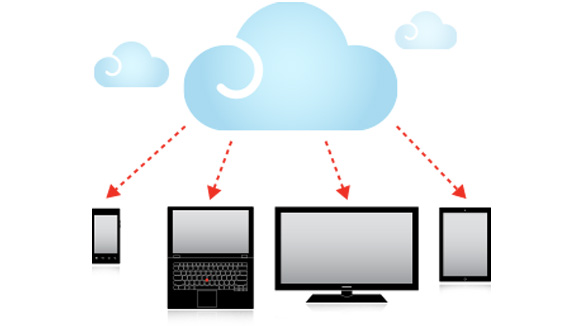How to buy and implement a hybrid cloud
It all starts with a Google search

Implementing cloud storage doesn't have to be difficult. A hybrid solution - where some data is stored offsite and the rest is kept on premises - is perfect for firms of SMB size, providing flexibility and reducing costs.
Hybrid cloud storage can bring savings in IT procurement, as you don't need the equipment and only pay a monthly subscription.
With patience and thorough research, you can put in a hybrid cloud yourself. It's best to start by segmenting information, storing locally any data you need to access quickly and archiving other data in the cloud.
In addition, choosing a cloud provider can be as simple as doing a Google search, with comparison sites such as Cloudpricing.co.uk able to help you with your choice.
Vast choice
But it can be confusing. From do-it-yourself options from well-known cloud providers such as Amazon, through to consultancy from Rackspace or Microsoft - or even smaller, local providers - the choice is vast.
There are various grades of cloud and the cost depends on access. Rapid access costs more, according to Daniel Foster, Technical Director at 34SP.com. But you can go down to1p or 2p per GB for slow access, which is ideal for archived data that you won't need immediately, he says.
"There's a contrast between the fact it's good to store large files away as it's cheap but you want low latency where you can get it quickly," says Foster. "There is an access cost too so you need to think about that."
Are you a pro? Subscribe to our newsletter
Sign up to the TechRadar Pro newsletter to get all the top news, opinion, features and guidance your business needs to succeed!
But once you have decided to ship out the data, migrating it over is quick. "If you have an archive you want to ship out, you can sign up, upload the data and you're done, depending on the internet connection," says Foster.
SMBs could start with basic cloud services such as Dropbox to improve productivity in the short term, advises Pushan Rinnen, Research Director at Gartner. This kind of service allows you to share data and sync, and is a good starting point to get used to cloud storage.
Cloud also works well for collaboration and group sharing in areas such as field sales. "If it's in the cloud, SMBs can access it from different devices," Rinnen says. "This is about making data available to businesses any time, anywhere."
SMBs must segment the data into two camps; the information they need to find quickly and that which can be archived. Large data, such as a large database or customer data - including video files - could also go in cloud storage along with archived information.
Applications approach
Certain applications may also suit being stored in the cloud. Most SMBs are interested in outsourcing applications such as their payroll admin, says Robin Kuepers, Enterprise Marketing Director at Dell Storage. Whereas this used to be done on site and everything was kept locally on the server, it's now something that can be moved over to a cloud company.
Security can be an issue, but "proper access control gives you the first line of defence", says Rinnen.
In fact, despite perceptions, data can be safer in the cloud, as the technology minimises the risks of losing information that's stored only on site. Foster thinks Amazon Glacier storage is good for archived data - and the cost is very low at "about 1 cent per GB".
Even then there is a risk, but making sure you have a strategy should help. "It's like getting in a car; there's a risk but you have to get from A to B. If you don't have a strategy that's where the risk is," Kuepers says.
Those with some technical knowledge will find Amazon simple to use. "It's all automated as long as you have someone who knows what they are doing," Foster says. "Amazon is quite a low level provider; you have to have knowledge."
For immediate access, Rackspace and Microsoft are a good option for SMBs, as they offer a "high level" service, with advice and consultancy as part of the package.
Foster's business uses Rackspace for cloud storage and consultancy. He says that in contrast to web services like Amazon, they are always available and keep in contact, so it depends on your preference.
Meanwhile, Dell offers consultancy and has experts in verticals such as healthcare, where keeping archived data is increasingly important, Kuepers says.
Disaster recovery
Cloud is a good place for disaster recovery, says Rinnen, and information can be ready in minutes with VMware's instantaneous VMware Restore - but it's expensive.
Rinnen thinks that Amazon's not right for many SMBs as it can be difficult to set up. She recommends looking at Seagate's Evault, which has data centres in Europe and the US, as well as Salesforce.com .
Once you've chosen a provider, implementing hybrid cloud storage is easy. But before that, you need to decide how you will segment your data, honing your strategy to your business.